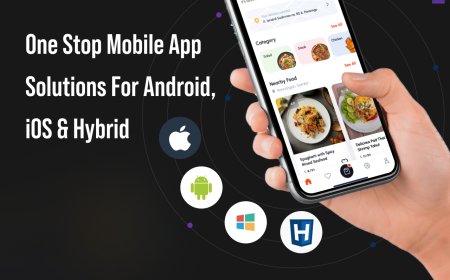The Time-Savvy BPO: Why Tracking Software Is Your Competitive Edge
Discover how BPO time tracking software transforms operations, boosts productivity, and gives your outsourcing firm the competitive edge it needs to thrive in a demanding market.

In the realm of Business Process Outsourcing (BPO), precision isn't a luxuryits a requirement. Every task, whether client-facing or back-end, is tied to time, cost, and accountability. For BPOs handling thousands of transactions, calls, or backend services daily, losing even a few minutes per employee can result in substantial operational losses over time.
Yet, many BPOs still rely on outdated tracking systems or manual timekeeping processes. These methods not only leave room for human error but also limit visibility into how teams spend their time. To stay competitive, companies must do more than managethey must optimize. This is where BPO time tracking software steps innot just as a tool, but as a strategic advantage.
Chapter 1: Understanding the Complexity of BPO Operations
BPOs operate in an environment of high expectations and tight margins. Whether it's customer service, technical support, data processing, or lead generation, the challenge lies in delivering consistent quality while controlling costs and meeting stringent SLAs (Service Level Agreements).
Consider these layers of complexity:
-
Diverse Client Requirements: Different clients have different KPIs and reporting needs.
-
Multishift Teams: Operations often run 24/7 across various time zones.
-
Global Workforce: Employees might work on-site, remotely, or in hybrid setups.
-
Billing & Compliance: Accurate logs are needed for payroll, compliance audits, and client invoicing.
In such a landscape, traditional spreadsheets and manual punch-ins simply fall short. What BPOs need is a system that offers clarity, control, and confidenceand thats what BPO time tracking software delivers.
Chapter 2: What Is BPO Time Tracking Software?
At its core, BPO time tracking software is a digital solution designed to monitor, manage, and optimize how time is spent across all levels of BPO operations. Unlike generic time trackers, BPO-focused software is built to support:
-
Project- and client-based billing
-
Multiple shifts and work locations
-
Productivity monitoring
-
Real-time reporting
-
Integration with payroll, CRM, and project management tools
More than just tracking "clock in and out" times, it provides actionable insights that drive smarter business decisions.
Chapter 3: From Timekeeping to Time Intelligence
Theres a big difference between knowing how much time was spent and understanding how well that time was spent.
Traditional Timekeeping Fails:
-
It cant detect idle time or unproductive workflows.
-
It doesnt provide context for delays or bottlenecks.
-
It creates room for buddy punching and manual errors.
With Time Tracking Software, You Get:
-
Automated timesheets: Reduce human error and administrative effort.
-
Productivity insights: Know which tasks take the most timeand why.
-
Idle time detection: Understand when employees are active or away from their systems.
-
Task-level tracking: See how much time is spent on individual clients or projects.
This shift from raw time data to meaningful time intelligence is what sets successful BPOs apart.
Chapter 4: Real Benefits That Give You a Competitive Edge
Lets break down how BPO time tracking software becomes a strategic asset.
1. Higher Productivity with Real-Time Visibility
When managers have access to dashboards showing who is working on what, and how long it takes, they can:
-
Allocate resources better
-
Balance workloads efficiently
-
Spot performance issues early
It also creates accountability across teams, encouraging employees to stay focused and manage their time better.
2. Client Trust Through Transparent Billing
Clients today want transparency. Time tracking software ensures accurate logs of hours worked on specific projects or tickets. This:
-
Builds client confidence
-
Reduces billing disputes
-
Speeds up invoicing cycles
3. Compliance and Audit Readiness
From labor laws to client-specific requirements, BPOs must stay compliant. Time tracking software:
-
Automatically maintains time logs
-
Supports audit trails
-
Helps manage break times, overtime, and shift regulations
4. Remote Team Management
With the rise of remote work, keeping track of dispersed teams is a challenge. A robust BPO time tracking tool supports:
-
Geo-attendance and remote check-ins
-
Screen monitoring (if required)
-
Time zone coordination
5. Operational Cost Reduction
When time data is used wisely, it reduces inefficiencies like:
-
Overstaffing or understaffing
-
Unnecessary overtime
-
Administrative workload on manual tracking
All of this leads to leaner, more cost-effective operations.
Chapter 5: Key Features to Look For in a BPO Time Tracking Tool
Not all tracking tools are created equal. When choosing a solution for your BPO, look for these must-have features:
-
Multi-project support: Ability to handle multiple clients with different billing models.
-
Real-time dashboards: Instant visibility for employees and managers.
-
Integrations: Compatibility with CRM, payroll, HRMS, and ticketing systems.
-
Custom reporting: Generate reports by client, employee, date range, or task type.
-
Mobile and desktop access: Easy logging across devices and platforms.
-
Role-based access control: Secure and compliant with data protection norms.
Chapter 6: Case Example The Turnaround Story
Lets take the example of a mid-sized BPO handling customer support for e-commerce and healthcare clients. They used spreadsheets to track time, which led to:
-
Frequent payroll errors
-
Late invoices
-
Client dissatisfaction
After switching to a BPO time tracking software:
-
Payroll processing time was reduced by 60%
-
Employee idle time dropped by 20%
-
Client renewals increased due to greater transparency
It wasn't just about automationit was about transformation.
Chapter 7: Employee Empowerment Through Transparency
Contrary to popular belief, tracking software isnt about micromanagement. When implemented properly, it empowers employees by:
-
Letting them track their own time and progress
-
Helping them identify productivity blockers
-
Encouraging ownership and responsibility
The best systems even offer gamification or recognition features that reward time efficiency and team collaboration.
Chapter 8: Debunking Myths Around Time Tracking
Myth 1: "It invades employee privacy."
Reality: Good tracking software respects boundaries and collects only work-related data.
Myth 2: "Its only useful for big companies."
Reality: Even small BPOs benefit from time efficiency and transparent reporting, especially when trying to scale.
Myth 3: "It demotivates teams."
Reality: When used transparently and paired with performance goals, it boosts accountability and morale.
Chapter 9: The Future of Time Tracking in BPO
With AI and machine learning being integrated into time tracking tools, the future promises even more:
-
Predictive analytics to forecast staffing needs
-
AI-powered performance insights
-
Behavioral patterns to spot burnout or disengagement
Those who invest in tracking software today are setting themselves up for success tomorrow.
Conclusion: Be the Time-Savvy BPO That Leads
Success in the BPO industry isnt just about lower costsits about higher intelligence. Intelligence about how your people work, where time is spent, and how that time translates into value.
BPO time tracking software offers exactly thata clear, data-backed view of your operations. It's not just a clocking tool, but a catalyst for better decisions, smarter teams, and stronger client relationships.
In a competitive market where every second counts, the real advantage belongs to those who track it wisely.




































![Play99 Login & Registration Guide for Indian Users [2025 Update]](https://www.atlantanewsplus.com/uploads/images/202507/image_140x98_6870c1df7bfcd.jpg)

